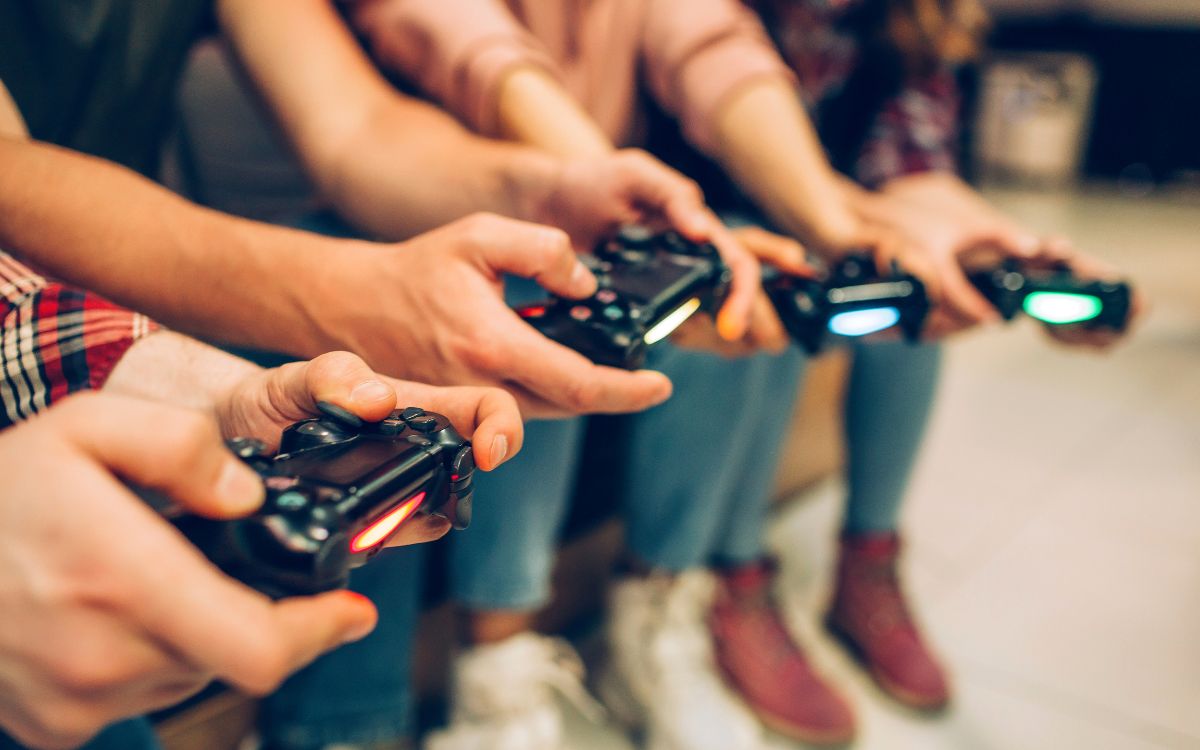Online games are not just fun; they are changing how we connect with others. Games, whether open-world adventures or competitive arenas, have become online communities. They foster friendships and even create professional networks. Online gaming connects strangers worldwide. It sparks talks about 22bet’s high-risk football predictions & big wins. This makes it a great way to socialize and share cultures.
From Recreation to Sincere Relationships
Online gaming lets people connect for shared goals. This often leads to strong social bonds in a unique setting. These virtual worlds help users create real connections through shared experiences. They remove many limits found in real life, like age, location, and social status.
In online games, especially team-based shooters and MMORPGs, cooperation is essential. Players must assign responsibilities, communicate, and have mutual trust in order to succeed. These connections build friendships that go beyond the game. They also reflect real-world social structures.
Establishing Communities in Virtual Worlds
An interesting aspect of online gaming is the growth of communities that act like real social groups. These communities often have a clear structure. They include planned activities, set hierarchies, and sometimes even their own economies. Joining these groups daily gives many gamers a sense of purpose and belonging.
Some in-game economies are so complex that they look like real-world financial systems. Unusual assets form the core of markets. Products, cash, and services often hold real value. Combining social and economic tactics results in an additional degree of engagement.
The Role of Voice and Video Communication
Voice chat, which was formerly unique, is now a standard element in most online games. Proximity chat and real-time team communication let players connect in a more natural way. This encourages both the growth of human ties and better gameplay.
Furthermore, games now have a whole new dimension thanks to live broadcasting. Viewers can connect with broadcasters live. They can join gaming sessions, make donations, and chat. This two-way interaction mixes players and audience. It changes passive viewing into an active social experience.
Online Events & Shared Experiences
Game developers increasingly plan in-game events that serve as culturally significant moments. Consider Fortnite concerts, Destiny 2 seasonal events, or live updates in Grand Theft Auto Online. These interactions connect players at certain times. They create memories like those from real parties or gatherings.
This trend impacts social ties and how people celebrate milestones. It also changes how we grieve losses and share important events. All of this happens within the safe and creative space of a virtual world.
Combining Real Life and Gaming
Many gamers are bringing their virtual relationships into the real world. Virtual connections—such as online meetings, gaming events, and weddings—are just as vital as in-person ones.
Some real-life repercussions of gaming-based social interaction include the following:
- Relationships and Friendships: Many stories show how people meet in-game and become partners or lifelong friends.
- Job Options: Streamers, esports players, and content creators often team up. They engage in gaming communities.
- Benefits for Mental Health: Online games provide a safe space. They help people with social anxiety, neurodiverse traits, and introverts connect and chat.
Gaming is now a key part of many people’s happiness. It provides both escape and friendship.
Challenges in Online Social Engagement
Online gaming has disadvantages despite its advantages. Toxic behavior, cyberbullying, and harassment are still issues in many groups. Problems can still arise, even with reporting and regulation systems. This is especially true in anonymous or competitive environments.
Also, too much gaming can lead to addiction and loneliness. It can replace real-life social connections. Balancing online and offline life is key. It helps you get the most social benefits from gaming.
How Online Games Encourage Social Development
Online games have great chances for social learning and personal growth, even with these challenges. Here’s how:
- Leadership and Teamwork: Many games require strategic planning, role-delegation, and teamwork. Players often gain leadership experience through team management and event planning.
- Cultural Exchange: Players from different countries learn new languages, customs, and views daily through their interactions.
- Building Confidence: If you struggle to talk to others in person, performing well in groups can boost your self-esteem.
- Digital literacy: You can learn skills like using social media and managing your online identity by playing games. Also, understanding online etiquette is part of this learning.
The Future of Social Engagement with Gaming
With the advancement of technology, gaming’s social potential will only grow. VR, AR, and AI NPCs will make online interactions feel more real and natural. Picture a virtual wedding in a stunning gaming world. Friends from across the globe join you live.
Developers are trying out AI companions and emotional avatars. They are also creating social hubs. These hubs let users connect, even when they aren’t playing. These advancements suggest that gaming will eventually supplant social engagement in the future.
The Social Consequences
The idea that video games are “just for fun” is quickly becoming outdated. They are evolving into spaces for teamwork, education, rehabilitation, and human connection. Each day, millions log in. This blurs the lines between virtual and real social spaces.
As this trend grows, developers and gamers must create friendly, inclusive spaces. This will help encourage productive discussions and foster community growth.
In conclusion, online gaming have evolved beyond simple technological entertainment. They are altering how we interact, form bonds, and understand one another. Games have become a new kind of social network. They create immersive worlds, allow real-time communication, and promote shared goals. In these spaces, friendships grow, skills improve, and human connections flourish. The lines between games and real life are fading. The future of social interaction is here. It’s more global, playful, and connected than before.
